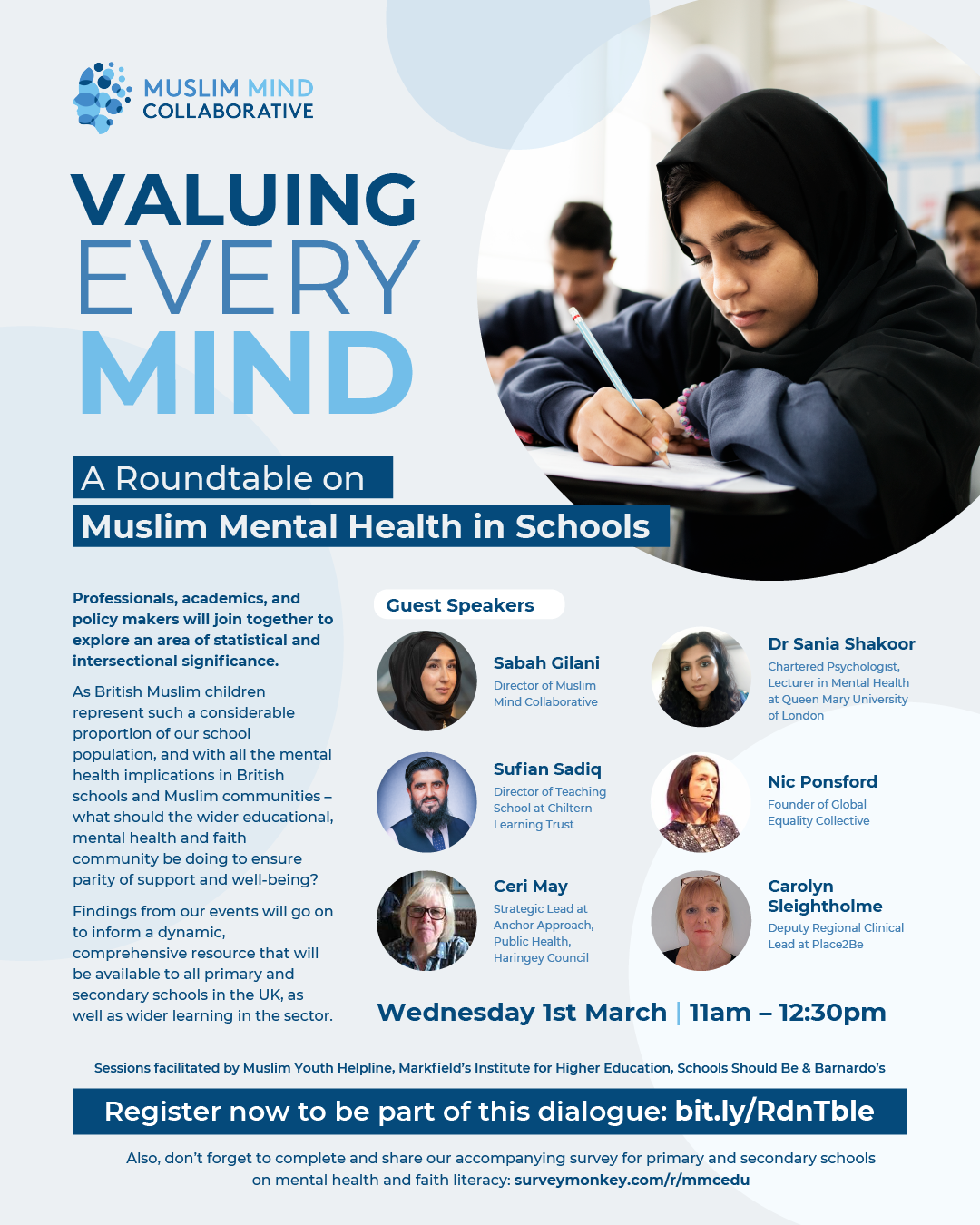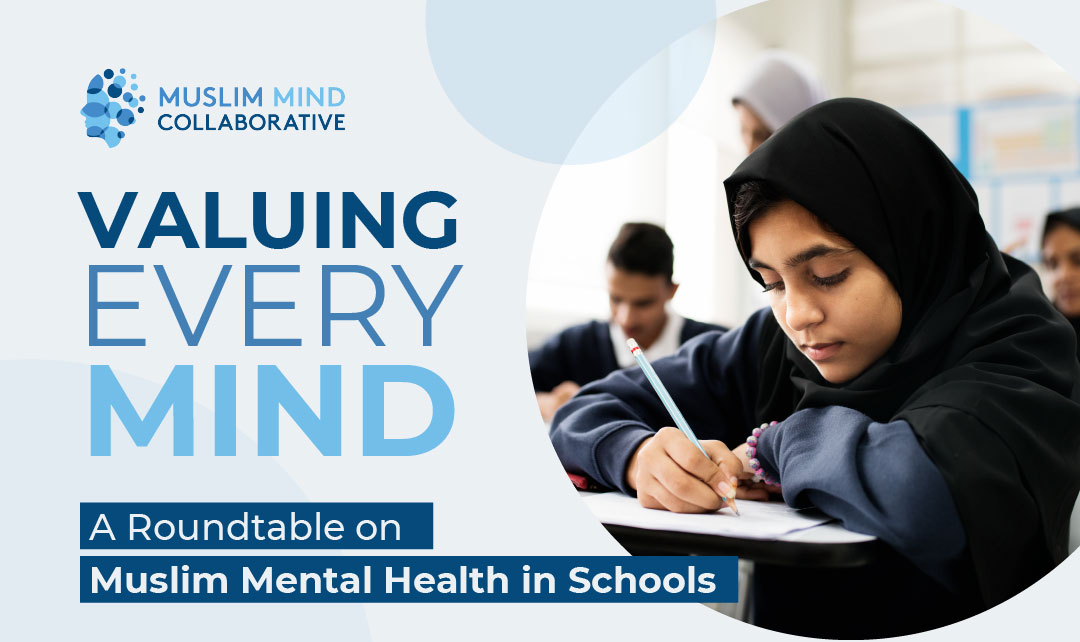On Wednesday 1 March 2023, we held our Valuing Every Mind Roundtable on Muslim Mental Health in Schools, bringing together practitioners, experts, academics and policy makers to the table, to discuss and learn from each other, to better support Muslim mental well-being.
1 in 12 schoolchildren in the UK being Muslim, and with the worrying context of both mental health in schools and the mental health of Muslims, this is an issue that impacts us all. As the pandemic worsened an already worrying situation, children’s mental well-being continues to fall further down the list of public health priorities. With Muslim children facing additional economic and social pressures, and given their statistical weight in the education system, the topic of Muslim mental health in schools, with all of its nuance, remains an unspoken and forgotten issue that should be part of a wider, national conversation.
Dr Sania Shakoor, Lecturer in Mental Health at QMUL provided some key insights into mental health in schools – while research doesn’t give us a clear picture of Muslim mental health, Muslims possess greater risk factors for some mental health conditions. Opportunities in school include intergeneration and cultural engagement with heritage culture and peer support.
Nicole Ponsford, founder of Global Equality Collective said, schools are full of time-poor, brilliant and passionate teachers and would benefit from taking an joint-up intersectional approach, destigmatise Muslim identity to create positive pathways for students.
Place2Be’s Clinical Lead, Carolyn with 13 years’ experience as Clinical Leas and Schools Project Manager talked about a non-judgemental, strength-based approach to mental health in schools. Young People need help with self-worth, resilience and problem solving, social and communication skills. Place2Be has been providing mental health support in schools for over 25 years, and is now working in over 700 schools nationwide.
Sufian Sadiq, Director of Teaching School at Chiltern Learning Trust said that we are seeing a trend which separates mental health and faith, and intersectional significance is not given weight. Highlighting the number of Muslims in senior leadership positions in schools is disproportionate to the Muslim student body. Sufian encouraged schools to take inspiration from faith as an element which drives compliance and a lever for young people. We should be looking at faith as a positive force.
Our speakers highlighted the diversity and non-homogeneity of Muslim experience and how these impacts on the perception of and responses to Muslims in the mental health and educational sectors. the session ended with some great conversations on the policy landscape, practical impact of our project and Islamophobia in schools.
Watch the event Valuing Every Mind: a Roundtable on Muslim Mental Health in Schools – YouTube
Muslim Mind Collaborative are working to address this burgeoning issue – we are creating a comprehensive and accessible toolkit for primary and secondary schools, to help address faith literacy and mental health support in their classrooms. Find out more.


